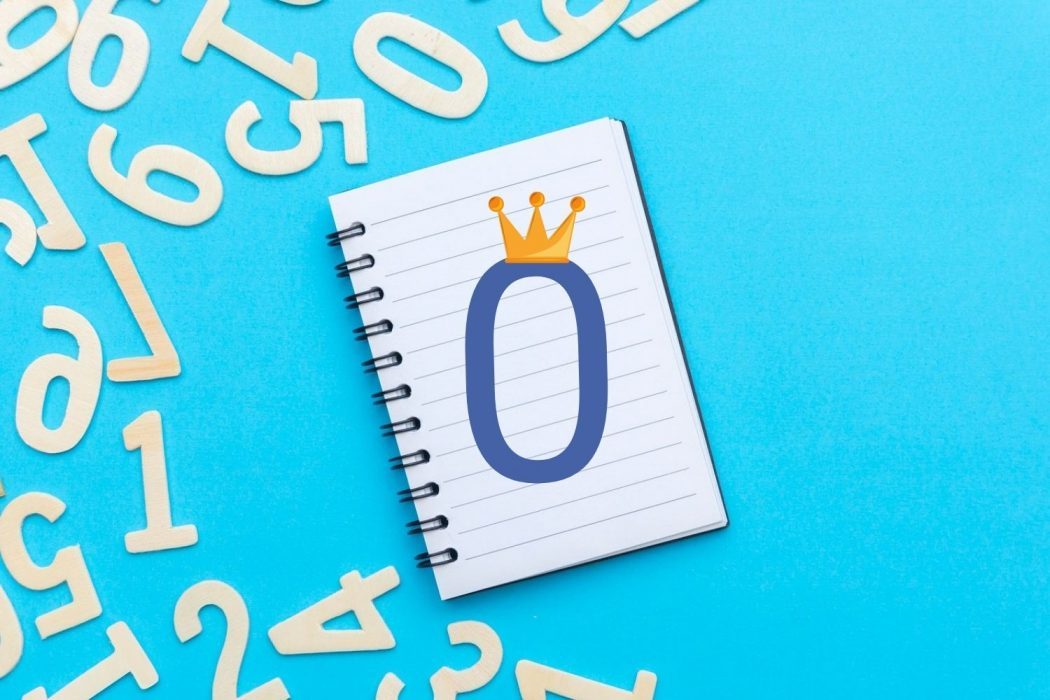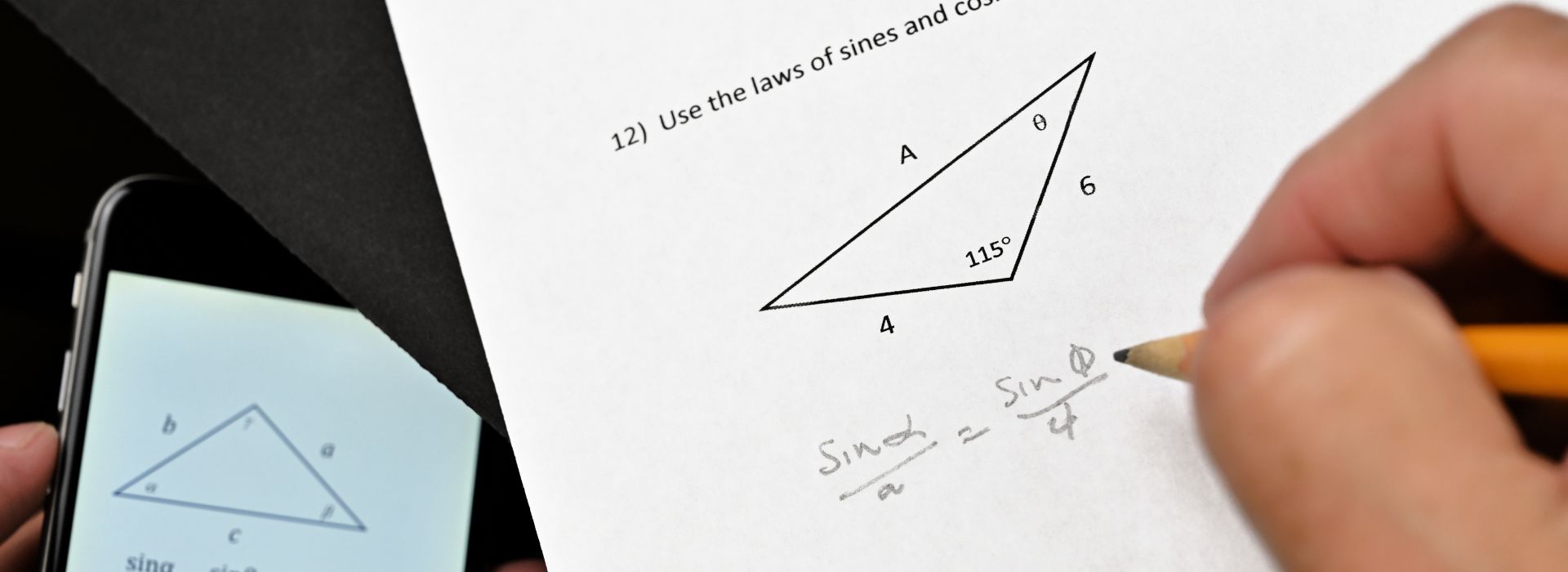
Essay on Importance of Zero: Why it denotes nothing but is needed for everything!
It isn’t a score we like to see on our test papers. Nor on the scoreboard while supporting our favourite team. But we sure would like to see a few of them added after any digit from 1-9 for the money in our bank account! That is the enigma of 0. A fascinating number whose presence is usually taken for granted. So what is the requirement of zero, which means nothing?
Of all the numbers, zero holds a special place. The concept of zero and its symbolism can be profound and quirky, making you appreciate the importance of zero in Maths.
Who Invented Zero in Mathematics?
So, who do we thank for the genius idea of zero? Well, it wasn’t just one person or even one civilization. Many cultures contributed their bit. The ancient Babylonians had their own concept of ‘nothingness’, but it was the Indians who actually gave zero its nifty little circle symbol. Over time, this idea spread and got picked up by other cultures, each adding their own twist.
No one person can be credited with ‘inventing’ the zero. The Sumerians 5,000 years ago were using a positional system without a 0. Instead, of a 0, a symbol or a space was used to distinguish between, for example, 104 and 10004. They inserted a slanted double wedge between cuneiform characters for numbers. However, this symbol was never used at the end of a number. The Sumerians clearly expected you to figure that out based on context!
The English word “zero” is originally derived from the Hindi “sunyata”, which means nothingness and is a central concept in Buddhism.
Brahmagupta, the Indian mathematician and astronomer, first defined the number zero and its operations and developed a symbol for it.
The ancient Mayans independently developed zero in their number system in Central America.
As the placeholder, zero was independently invented in civilisations throughout the globe.
The Arabs were the harbingers of Zero in the Middle East. From there, the zero began its eventful journey to Europe. This number in the 1200s enamoured the mind of the mathematician Fibonacci, and he popularised the “Arabic” numeral system we all use today.
So there is your answer for who introduced zero?
It is hard to believe that all the infinite procedures in mathematics dance around the pivot of the idea of zero.
Mathematical Applications of Zero
Zero in Modern Computing:
Guess who’s the real MVP in the digital world? Yep, it’s zero! Alongside its buddy ‘one’, zero is a big deal in the binary code that powers our computers, smartphones, and, well, just about every gadget we rely on. It’s amazing how this simple digit keeps the digital world spinning!
Calculus and Zero:
Limits: The foundation of calculus rests on the idea of a limit, and approaching a value infinitely close to zero.
Differential Calculus: When we talk about the rate of change (like speed or acceleration), we’re discussing values as they approach zero.
Algebra and Equations:
Solving for ‘x’: In algebra, we often set equations to zero to find unknown values. For instance, quadratic equations are often set to zero to find the roots.
Zero in Geometry:
Origin Point: In coordinate systems (like Cartesian coordinates), the point (0,0) is the central origin from which all other points are measured.
Complex Numbers:
Real and Imaginary: Zero is central in the world of complex numbers, bridging the real and imaginary parts. Think of numbers like 0 + 2i.
In Finance and Accounting:
Balancing Books: In your field, zero is crucial. It represents balanced accounts, and a point where assets match liabilities.
Zero’s Philosophical Connotations:
Zero has often been used in philosophical and spiritual discussions, representing concepts of emptiness, potential, or infinity.
Potential Pitfalls:
Division: Remember, while zero is versatile, dividing by zero in mathematics is undefined. It’s one of those intriguing quirks that mathematicians and philosophers have grappled with for ages.
Brief History of Zero in Maths
Despite the negative view of Western philosophy towards the concept of nothing, the invention of zero immensely simplified calculations. It allowed the mathematicians to propound essential mathematical disciplines: algebra and calculus. The importance of zero is evident when we realise that this concept improved the computation method and equipped mathematicians in historical times to handle more complicated problems. As a result, they could study numbers’ general properties and further develop maths.
The requirement of zero in maths is significant as the additive identity of the integers and real numbers. Zero also plays a critical role in algebraic structures. As a digit, zero is important as a placeholder in the place value system.
- Necessary for fractions
The importance of zero in Maths is also realised through fractions. We wouldn’t be learning fractions in school if it wasn’t for zero. Furthermore, the engrossing zero created a more accurate way to describe fractions. For example, we now know that adding zeros at the end of a number increases its value and impact, whereas with the help of a decimal point, adding zeros at the beginning of a number decreases its magnitude.
- Set the boundary
How could we possibly have negative numbers if it wasn’t for 0? Confused? See, zero is neither a positive nor a negative integer. It sets the boundary between positive and negative numbers. That is why many scales have zero as their starting number. Zero helps us understand and explain concepts that do not have physical forms!
- Providing appropriate weights to the digits
The number zero is used as a placeholder in the place value system. For example, two zeros before a number indicate a hundred position, while a single zero before a digit indicates a tens position.
- Foundation of digital world
And not to forget the importance of zero becoming the basis for the binary system of computers.
Everything digital today depends on zero. The computer understands binary language, which consists of two digits: 0 and 1. So the digital age could not have been possible without the ubiquitous zero. Hence proven, that the requirement of zero is felt in our everyday lives.

Some interesting facts about the number 0
Did you know that the simple digit we so often take for granted has such a storied past? Here’s a deeper dive into some fascinating tidbits about zero:
- Cultural Acceptance: While many ancient cultures like the Babylonians had a concept of ‘nothingness’, it was the Indians who gave zero its symbolic representation. And guess what? This profound idea was initially met with skepticism by European mathematicians.
- Zero in Astronomy: Our ancestors used the concept of zero in astronomy. The Mayans, for instance, employed zero in their elaborate calendar systems, which is pretty remarkable when you think about it!
- Mathematical Revolution: Zero’s introduction into Europe in the Middle Ages spurred a mathematical revolution. It laid the groundwork for algebra and was a game-changer for complex calculations.
- Place Value System: Can you imagine doing basic arithmetic without the place value system? Zero plays a critical role here, ensuring numbers like 10 and 100 have their unique value.
- The Concept of Absolute Zero: In the world of physics, absolute zero is the theoretical temperature at which particles have minimum thermal motion. It’s quite chilling to think about – literally – as this temperature is a frosty -273.15°C!
The importance of zero is comprehended through these facts too:
- We do not have a year 0. Our historical calendar goes from 1 BC to 1 AD.
- Zero is an even number, as it satisfies the definition of an even number, i.e., a multiple of 2, where 0 x 2 = 0.
- Zero can be divided by 2, and each of its multiple. For example, 0 ÷ 2 = 0 and 0 ÷ 6 = 0.
- Zero at the end of a number makes the number an even number.
Zero Addition
Adding a number to zero equals that number.
n + 0 = n
2 + 0 = 2
Zero Subtraction
When subtracting 0 from a number, you get the same number as your answer.
n – 0 = n
3 – 0 = 3
Zero Multiplication
Multiplication of a number times zero is equal to zero
n x 0 = 0
Example
1 x 0 = 0
- A number divided by zero is undefined. It is because 0 lacks a multiplicative inverse.
- Raising a number to zero power leads to 1. The only exception to the rule is when that number is zero (in some contexts).
- X0 = 1 (where x is not 0)
- 50 = 1
- Zero is a whole number. It is an integer. And is a rational number. In other words, you can express it as the quotient of two integers.
- 0 is neither a positive number nor a negative number. It’s a neutral number.
- Representation of null set: Only zero can enable you to represent an empty set with no elements.
- Rounding off the digits: Zero is also essential in rounding the numbers. If the digit after the decimal is greater than or equal to 5, it is replaced by zero, while the digit on the left of the decimal is increased by a value of 1.
Zero to Hero: Unravel the Mystery of Zero!
Welcome to our fascinating journey into the world of zero! Often overlooked, zero is a hero in its own right, laying the foundation for modern mathematics and beyond.
Conclusion
Zero is more than just a number. From its ancient origins to modern science, it’s made a huge impact. Every time you use or see a zero, remember its unique story and the big role it plays in our world. Who knew something that represents ‘nothing’ could mean so much?
The importance of zero has held its place of significance for centuries. Though it stands for an absence, its importance in our lives has been summed up by this anonymous quote: ” Zero is supposed to be nothing, but works wonders if on the right side.”
In case you wish to know more about handling mathematical calculations and concepts, which of course involve zero, get in touch with Edulyte. Our mentors not only create techniques to help you master Maths but also make learning fun!
Similar Blogs
Learning lessons, study tips, career guides and much more!
Trigonometry in Real Life: Trigonometry Calculator Practical Applications
Estimated reading time: 3 minutes Trigonometry is a branch of math that focuses on triangles, especially the relationships between their angles and sides. It might…
Numbers in Words : Your easy-to-use guide when writing numbers with English letters
Writing numbers in words can be done effectively with a few effortless steps. It is as essential to learning to write numbers in words in…
Frequently Asked Questions
A mind-bending quality of 0 is that when you multiply it with any number, the product is zero, and it holds when you multiply with 0.
So, 0 x 0 = 0
We can’t exactly say who invented it. It has existed since the Sumerians were chilling in southern Mesopotamia. But it emerged as a digit with value, with the Indian mathematician Brahmagupta giving it a role more significant than just a positional number. And after that, they say, there was no looking back for zero.
Don’t we all confuse the number of zeroes in a million? Well, there are 6 zeroes in a million. So:
1000000 = one million
4000000 = four million
65000000 = sixty five million
The other digits indeed will feel jealous, but the importance of zero can not be overlooked. It is unique and connotes the absence of something, unlike any other number. It can decide the place of a number in the number value system. If there are two zeroes after 3, it is 300; if there is just one zero, it is thirty.
It has simplified complex calculations and made fractions easy to handle.
It represents the boundary between negative and positive numbers. And that gives it the unique position of being the starting point on many scales.
It equips us to deal with the concept of infinity. And zero also helps us grasp the notions that do not have physical counterparts.
Indeed a question that baffles students. As a whole number, 0 is an integer as it can be written without a remainder. Yes, zero is an integer. Just like -1, -2, 1, 2, and so on, zero is right there in the mix. It’s smack in the middle, neither positive nor negative.
Zero holds the position of being the number between the start of the positive and negative numbers. So it is the first number of the integers.
Use the REPT Function to Add Leading Zeros
To add zeros in front of numbers in Excel is using the Repeat or REPT function.
REPT function repeats the character you want a certain number of times.
The REPT function requires two items:
the text you want to repeat
the number of times you want to repeat it
So you can use a 0 as the text to repeat, followed by the number of times you would like it to appear.
For example, to create a list where all cells begin with two zeros, you can use REPT to combine the number of zeros you need with the contents of the cells.
It would look something like this:
=REPT(0,2)&A2
Another method is by using custom formatting. For example, you can format the cells to display a set quantity of zeros in front.
Let’s say you want to format your cells to display six numbers. To do this:
Select all the cells you need to add a zero to, right-click and select Format Cells
In the Number tab, select Custom
Under Type, enter 6 zeros
Click OK
Tricky to answer this one. Sumerians were using it 5,000 years ago but just as a positional number. The Indians decided to give it the significance of being part of calculations. The Mayas were using it as well as the Sumerians by the time the common era dawned upon us.
It is neither. As said above, it sure is an enigmatic number. It holds the position of being between the start of the positive and negative numbers.
Is Zero even or odd?
Difficult for a layperson to answer, but mathematicians swear that it is an even number. Because any number that can be divided by two to create another whole number is even.Zero passes this test because if you halve zero, you get zero.
Maths teachers formulate learning outcomes reports, comprehensive insights, and remedial solutions. We ensure that every student gets the appropriate teachers’ input throughout the course. This permits the student to learn fast and effectively.
Of course! Online sessions have great advantages. They save time and allow you great flexibility. You can easily concentrate on your studies without worrying about anything else. Also, you get the best of tutors and learn through innovative methods from the security of your home.
The fundamentals of Mathematics taught are the foundations for your college education and future. Therefore, it is crucial to receive the proper guidance and absorb the knowledge well. Go through our tutor listings and their courses. Find one that suits your requirements and ensure a good result!









